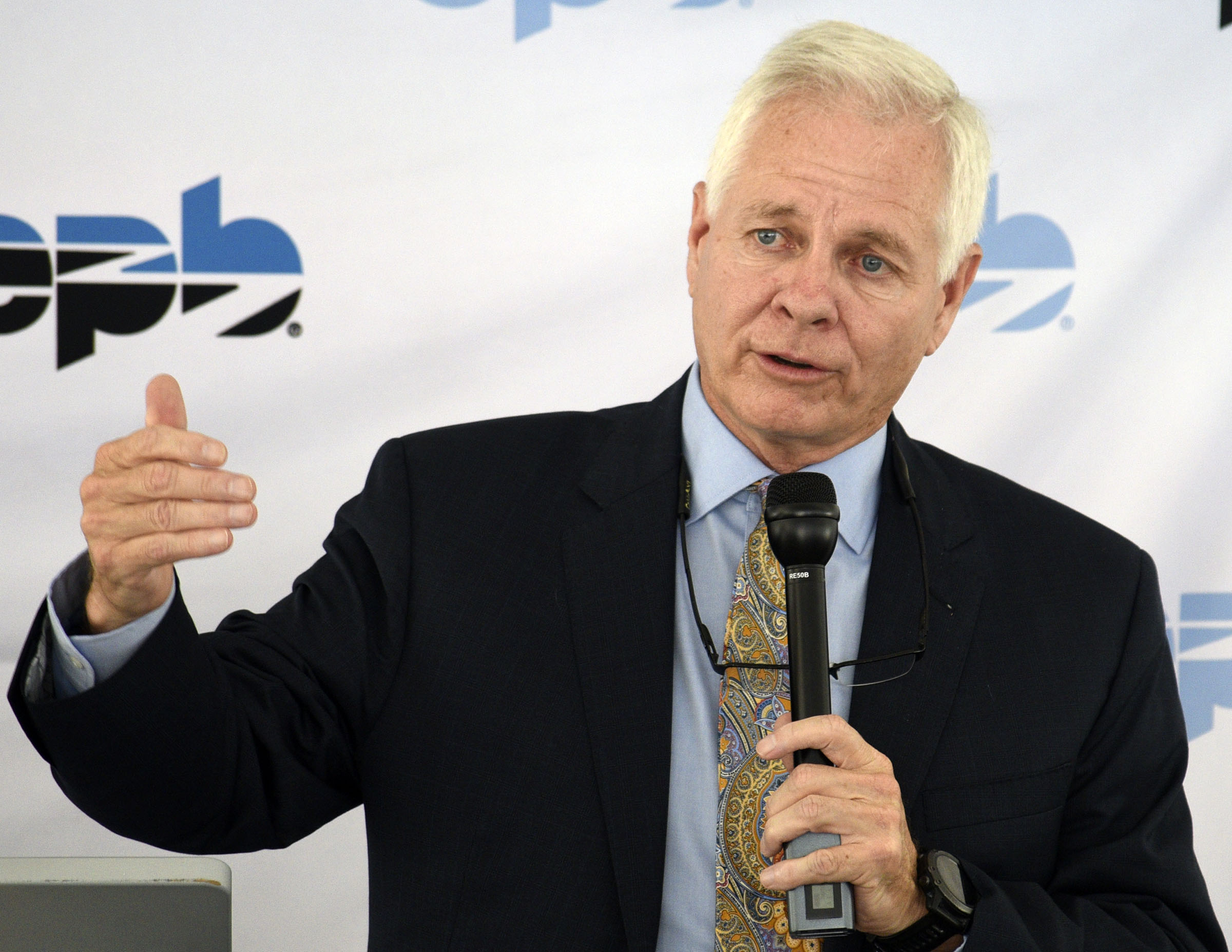For the first time in its 87-year history, the Tennessee Valley Authority may soon grant the local power companies that distribute its power the ability to generate or buy power on their own.
Under a set of principles approved Thursday by TVA directors, the federal utility will grant more flexibility to the 154 municipalities and power cooperatives that buy its power and sign new long-term agreements with the federal utility. TVA will allow its distributors the right to buy or generate up to 5% of their power (or 1 megawatt for small distributors) from sources other than TVA.
"This is certainly significant in that we've never done this before," TVA President Jeff Lyash said. "But we recognize that the industry is changing with technology and customer demands to both keep electric rates low while moving to cleaner energy sources."
The six principles adopted by the TVA board during its quarterly board meeting in Oxford, Mississippi, require that any energy resource sites in the Valley "must be documented, metered, operated and connected in a manner consistent with TVA standards." While promoting more flexibility for its distributors, Lyash said it is important that TVA maintains a system that can accept and stand beyond the new power."
Though distributors will initially be limited to only 5% of their load, TVA said collectively that represents up to 850 megawatts of power that could grow over time.
The flexibility offered to municipalities and co-ops that sign long-term contracts marks a change from the previous requirement that such distributors must buy and distribute all of their power through TVA at the rates and terms set by TVA.
"The future is really at seeing things at a smaller scale," said Doug Perry, TVA's vice president of commercial energy solutions. "Today, it is a bathtub and tomorrow is an icecube tray."
TVA Director A.D. Frazier, the chairman of TVA's finance, rates and portfolio committee, said the new flexible terms will allow local power companies like EPB to develop and own their own solar, wind or other renewable generation to respond to the growing demand by power users for different energy options.
Perry said that some local power companies told TVA in recent years that they were losing power customers because they couldn't provide the flexibility they requested under the all-purchase contracts TVA previously had with its distributors.
TVA's eight current solar projects are owned or controlled by TVA. But the new flexibility agreements will also distiubors to own and operate their own generation for this own customers.
Perry said TVA is already talking with a dozen local power companies about possible new distributed energy sources.
The new flexibility comes as 135 of TVA's 154 municipalities and coops that distribute TVA have signed new 20-year power purchase contracts with TVA. In exchange for the the longer term agreements, TVA is offering 3.1% rebates to those distributors.
Chattanooga's EPB signed a 20-year agreement last month and the Huntsville City Council in Alabama is expected to give its final approval for a similar arrangement for Huntsville Utiltiies.
But TVA's biggest customer, Memphis Light Gas and Water, has yet to sign any long-term contract with TVA and is studying whether to split with TVA in five years. MLGW is studying alternative ways to generate, buy and distribute power other than through TVA, which has provided all of its power for over 80 years. Memphis expects to make a decision later this year.
David Wade, president of Chattanooga's EPB, said in working on that long-term partnership, "EPB put a particular emphasis on the need for local power companies to have as much flexibility as possible in offering innovative energy solutions for our customers.
"We were glad to see the changes TVA made." Wade said. "In recent years, we've seen growing interest, particularly among commercial electric customers who are focused on enhancing the resilience of their operations, reducing their environmental impact, and achieving other operational objectives."
TVA itself is working to develop more of its own utility-scale solar generation with plans announced this week for another 484 megawatts of solar generation from five new projects in Tennessee, Kentucky and Mississippi. TVA also is studying whether to buy 2,474 acres in Alabama to possibly build up to a 227-megawatt solar farm - the biggest solar generation project ever owned by TVA.
Despite such gains, some environmental groups who want TVA and its distributors to do more to promote energy efficiency and renewable power worry that the longer term contracts between TVA and its distributors will limit the development of local solar and other renewable power programs by local power companies since such utilities will still be required to buy most of their power from TVA.
"We had hoped that EPB would not sign this 20-year agreement because it locks EPB into TVA and keeps local utilities that sign these long-term contracts from expanding as much with solar power that we believe would be better for the future," Sandy Kurtz of the Cherokee chapter of the Sierra Club, said last month.
The Southern Alliance for Clean Energy and Friends of the Earth are urging Memphis, Knoxville and other municipalities which have not yet signed the long-term TVA agreements to avoid such long-term agreements and seek more of the increasingly cheaper solar and wind energy from other sources.
Lyash said each local power company is given the option and is free to decide whether to sign the new 20-year agreement, but he said he hopes that the new long-term partnership will actually promote more renewable power than under the current, shorter-term contracts.
"TVA has led all utilities in the Southeast in carbon reductions and we want to do more," he said.
Contact Dave Flessner at dflessner@timesfreepress.com or at 423-757-6340.


